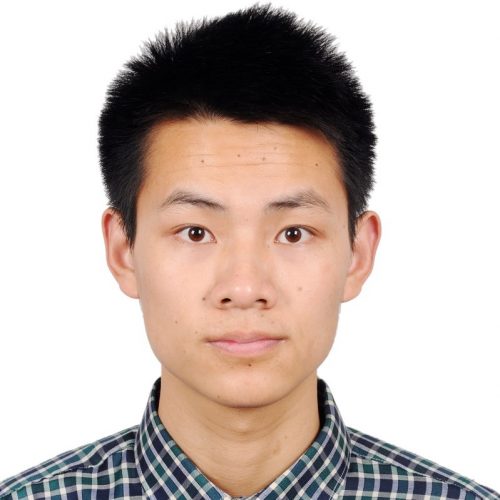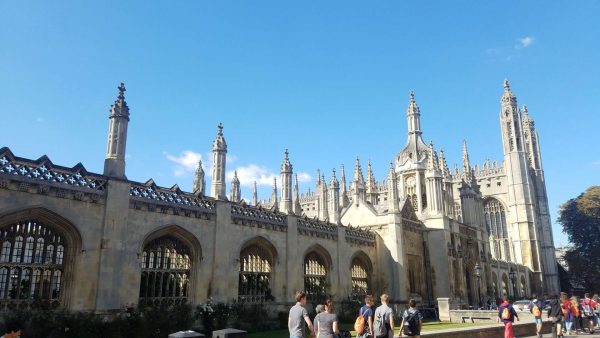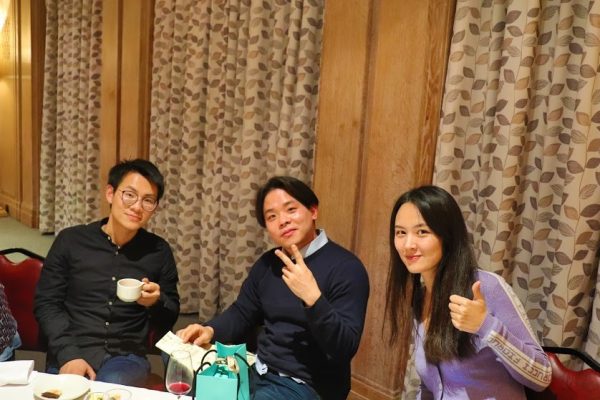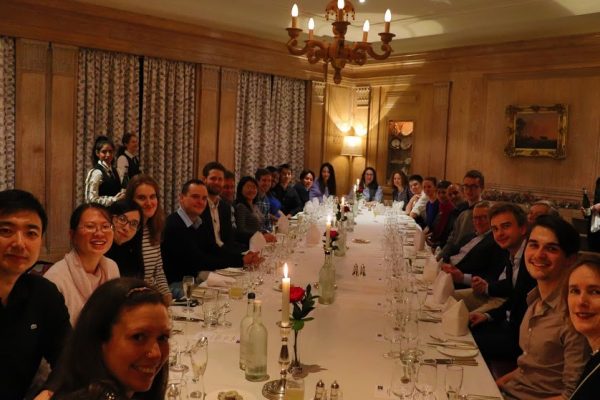Voices from the Sylff Community
Mar 31, 2020
Empirical Research on Financial Crowdfunding at a Leading Research Organization for Alternative Finance
Wanxiang Cai, who received a Sylff fellowship at Chongqing University in 2016 is currently enrolled in a PhD course at the School of Economics, Utrecht University, Netherlands. His research area is entrepreneurship. Using an SRA award, he visited the Cambridge Centre for Alternative Finance, a leading research center in the field of fintech.
* * *
In recent years, crowdfunding has emerged as a source of online entrepreneurial finance. Although crowdfunding has attracted the attention of both researchers and policymakers, as an emerging form of entrepreneurial finance, we still have very limited information about its global pattern. My PhD research is about the governance of financial crowdfunding, and I suggest it is important to analyze the relationship among social capital, legal institutions, and financial crowdfunding at the macro (national), meso (platform), and micro (campaign) levels. It is essential for me to collect data about financial crowdfunding at the platform and national levels to finish my thesis.
The Cambridge Centre for Alternative Finance (CCAF) is a leading research center in the field of fintech. It publishes several international industry reports every year. The center collects data from more than 1,000 fintech companies around the world and provides information about the development of the alternative finance market in different countries. These reports are the most comprehensive publications in this field and have been extensively cited in academic papers. Furthermore, the CCAF has established favorable relationships with policymakers around the world, including the Financial Conduct Authority (FCA) in Britain, the Inter-American Development Bank (IDB), and the World Bank. Thus, visiting the CCAF can not only help me collect essential data for my research, but also offer me a chance to have a deeper understanding of the industry and get more great insights from policymakers.
After communicating with Tania Ziegler, the lead in Global Benchmarking at the CCAF, we reached the agreement that I would visit the CCAF and help them write the global benchmarking report, and in return, they would provide me with their survey data for my research. Furthermore, they would also give me a chance to discuss my research with several senior researchers at the University of Cambridge, including Professor Raghavendra Rau, who has a very high reputation in finance. Thanks to Sylff Research Aboard, I had the chance to visit the University of Cambridge and had a great time at the CCAF.
I started my visits on September 1, 2019. I was shocked by the beauty of the city and the sacredness of the university. It was always sunny during my first two weeks in Cambridge, which is unusual in Britain, as it rains all the time. Several colleges are scattered along the banks of the River Cam, including Trinity College, where Issac Newton studied hundreds of years ago. An enormous number of visitors walked along the river, while the students in Cambridge shared with them the glories of the university, such as its history, famous alumni, and recent academic outcomes. These students looked very confident and felt so proud of their university, making me eager to start my research at Cambridge.
I began my research immediately. The first thing that I had to do was to collect data from a vast number of alternative finance platforms. The annual alternative finance report is based on these survey data. Thus, I contacted the founders of the platforms to see whether they were willing to get involved in our research. We collected data from more than 1,600 platforms around the world. Then we summarized how the market volume had changed over the last few years in major countries, as well as platform owners’ opinions about potential risks and regulatory changes. Based on this data, we also provided some preliminary analyses of what affects the growth of the alternative finance market. For example, we found a significant relationship between proper legal protections and the development of the alternative finance market. The information obtained in this way helps me to gain a deeper understanding of the global alternative finance market and is beneficial to my future research.
Meanwhile, I enrolled in an online course called Fintech and Regulatory Innovation. Through this course, I have gained new knowledge about fintech, especially from a regulatory perspective. More importantly, other students in this course are policymakers from around the world. During their discussions, I learned enormously from them. All the students come from central banks or other financial institutions, and they have great insights about the governance of fintech. They not only showed their expertise and experiences in the fintech topics but also raised questions about the future development of the market and potential research on these topics.
In addition to the above, we have discussed my research with several researchers. I have discussed one of my current papers with Wanxin Wang, a PhD candidate at Imperial College London. She also studies the topic of crowdfunding, and in fact, my paper is built on her recent paper published in a top journal. Her paper shares many similarities with mine, and she provided me with several suggestions for my research. I have also talked extensively with Dr. Rui Hao. She is very interested in my research, and she also helped me get a chance to interview policymakers worldwide. We decided to work together on a research project about how the regulations on equity crowdfunding will change. Unlike traditional entrepreneurial finance (e.g., venture capital and business angels), crowdfunding mainly consists of small investors who have limited knowledge about finance and investments, making it difficult to make proper regulations on financial crowdfunding. On one hand, overly strict legal protections on investors may harm small firms and entrepreneurial initiatives. On the other hand, legal protections can resolve extensive information asymmetry between investors and entrepreneurs. Thus, we have decided to conduct interviews on dozens of policymakers around the world. Using qualitative research methods, we would like to study how the regulations on financial crowdfunding will develop in the future.
Lastly, I conducted a study about how equity crowdfunding affects traditional entrepreneur finance. As an emerging form of entrepreneurial finance, we know less about the influence of equity crowdfunding compared to traditional entrepreneurial finance. First, equity crowdfunding may substitute traditional forms of entrepreneurial finance, such as venture capital, business angels, and private equity. Alternative, it may compensate traditional entrepreneurial finance, as it mainly supports small companies. This study contributes to my PhD research, as it explores under which legal conditions equity crowdfunding can contribute to the development of traditional entrepreneurial finance. Using the data from the CCAF and other databases, I have done some preliminary analyses. I have also discussed the idea and methods with Professor Raghavendra Rau. He gave me several comments, and I am improving this paper based his useful input.
In a nutshell, I have benefited extensively from this visiting. I have made friends, shared my research, got feedback, and gained a deeper understanding of my research. I appreciate that the Sylff Association has provided me with the scholarship to support my research at the CCAF. I am confident that other scholarship winners will also benefit from the Sylff.




